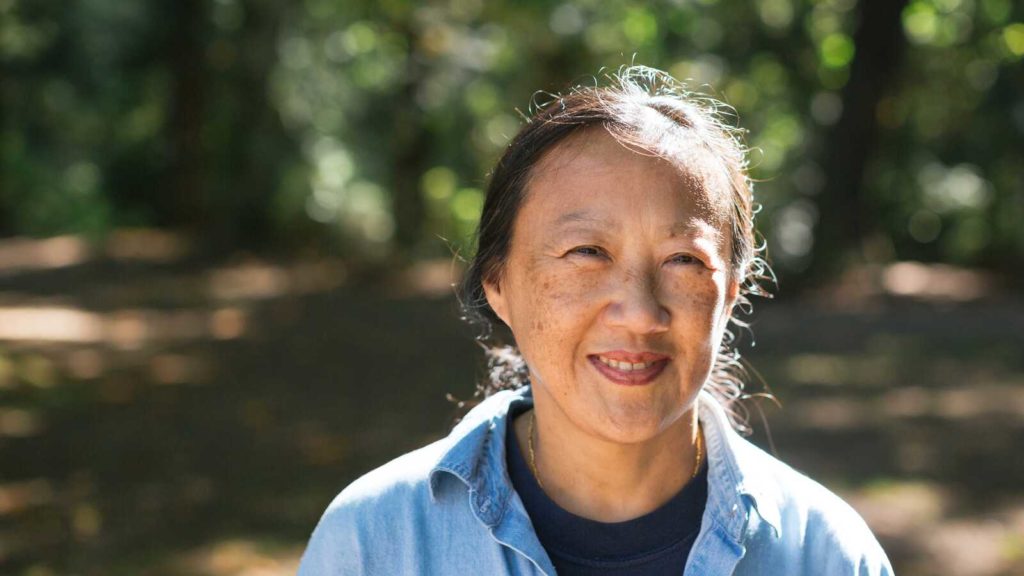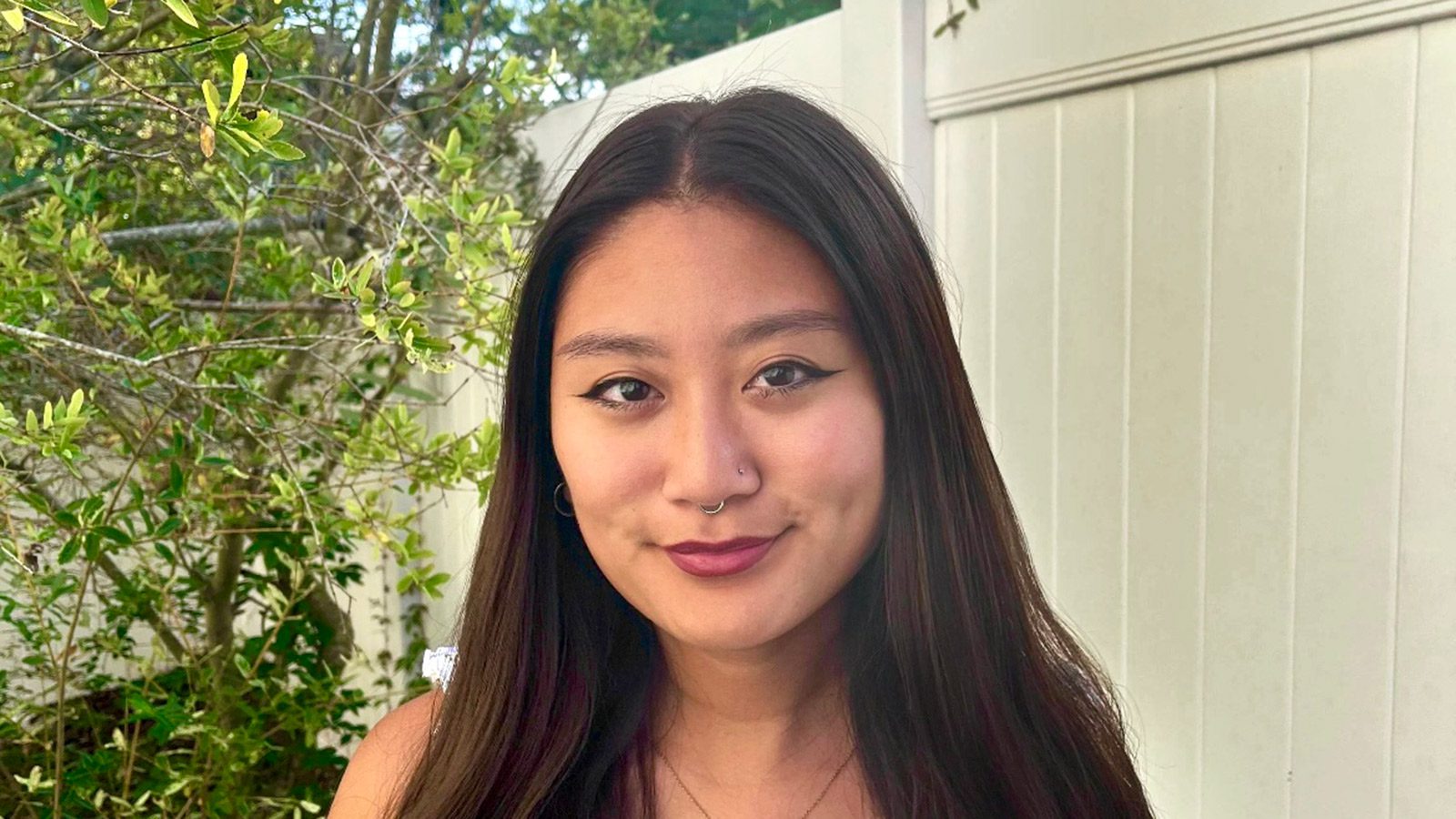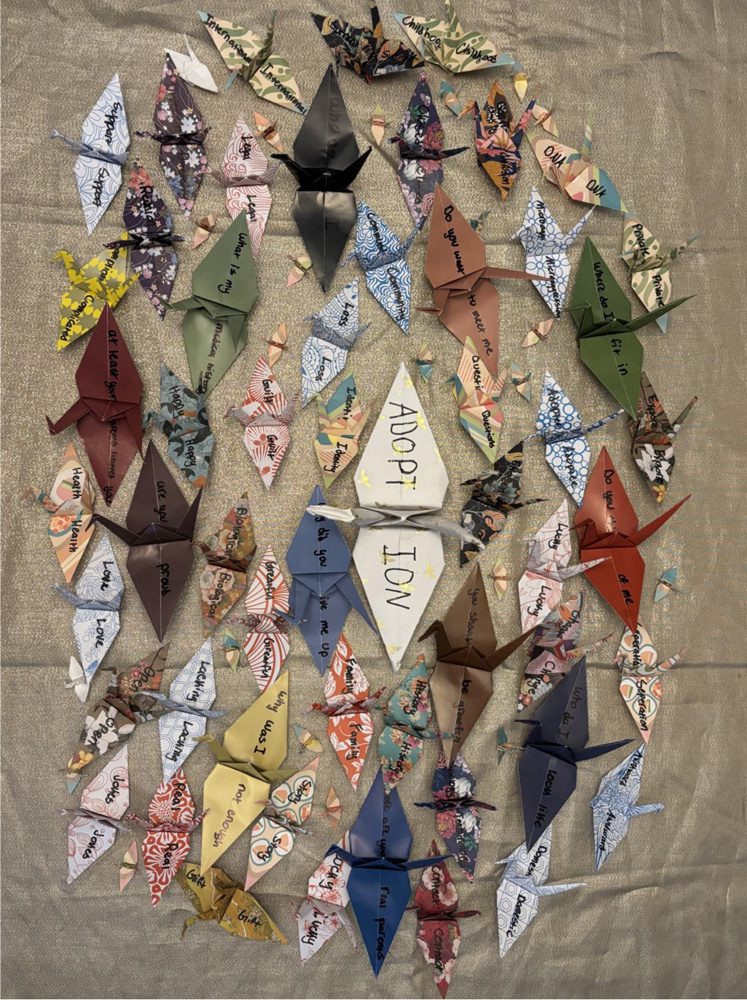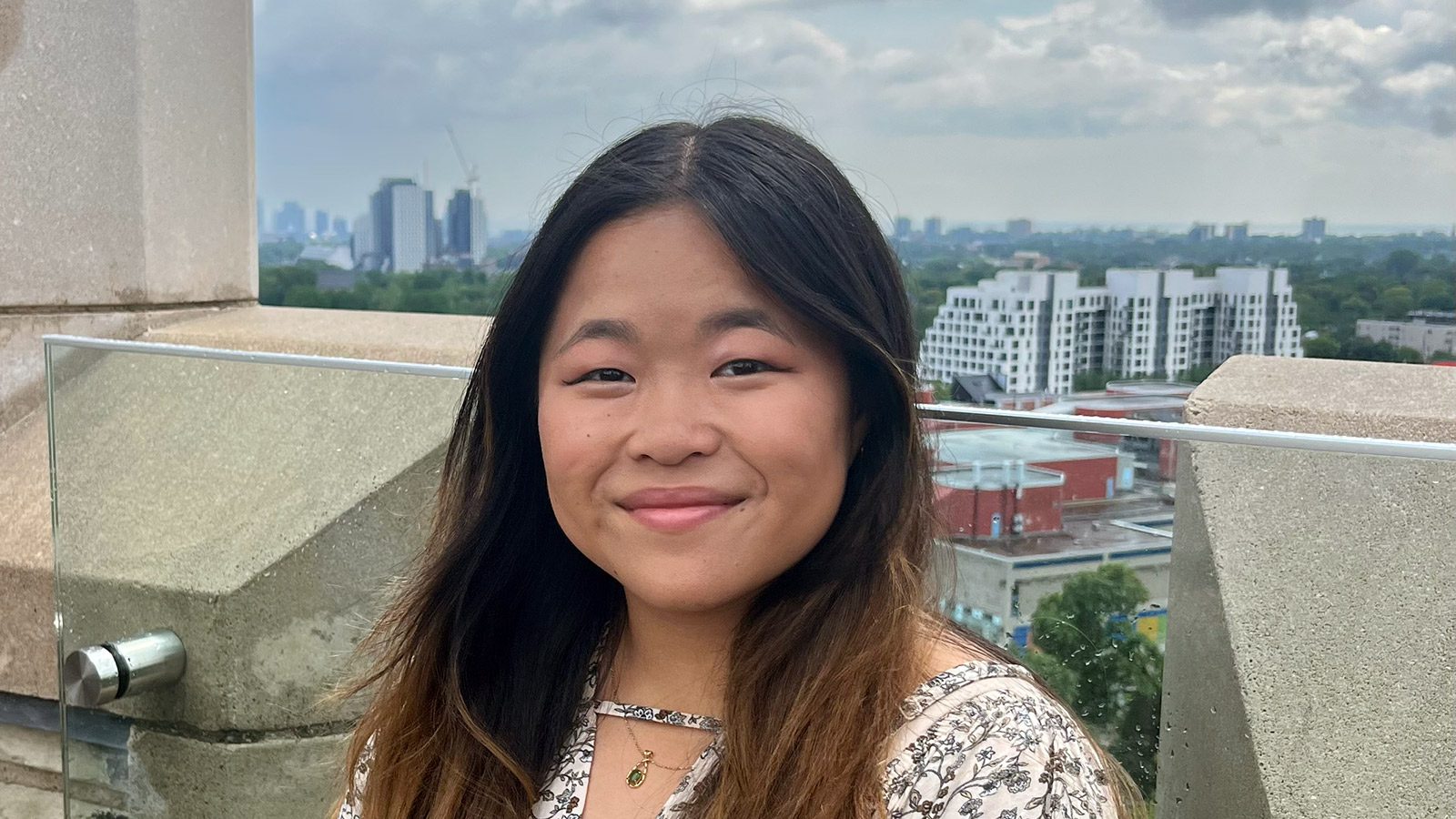Congratulations to the 2024 Holt Adoptee Scholarship Contest winners — Jayden Waggoner, Rosy Tate and Shaelynn Pelusio.
In 2024, we asked adoptees to submit a creative work responding to the prompt, “What is the one thing you want to tell parents starting the adoption process, and how would this advice have impacted your adoption journey?”
This topic was chosen by adoptee professionals who work on Holt’s post-adoption services team. They chose this prompt in order to offer adoptees creative freedom in a safe environment to tell their story and describe their adoption journey. We were moved and impressed by all of the adoptee submissions!
Shaelynn Pelusio was adopted from Korea at 6 months of age. She is currently enrolled at Rutgers, the State University of New Jersey, where she is majoring in social work and minoring in psychology. Upon graduation, Shaelynn intends to earn a master’s degree in social work and pursue a career in counseling, disability services or child welfare.
Here is the essay she wrote in response to the prompt:
I am Shaelynn Pelusio. I was adopted at six months of age from Seoul, South Korea, through Holt International. Thanks to my adoption, I live in New Jersey and grew up on the shore with my mom, dad and two brothers, who were both also adopted from South Korea through Holt. My family is near picture-perfect. We had annual trips to Disney World, and even now still go as all of us have reached adulthood. We had nightly family time, in which we collected on the couches and watched the same cooking and reality competition shows, with the occasional sitcom sprinkled in. We’d inevitably talk through them all, favoring each other’s company over the entertainment, and have to rewind every few minutes to catch the parts we missed.
I attribute the majority of my personality traits and ambitions to the teachings of my mother, father and brothers. They are everything to me, and had it not been for my adoption, I wouldn’t have them and would undoubtedly be a completely different person than I am now.
We had game night every few months, in which we would humor each other with vulgar jokes and fill the space with nothing but boisterous laughter. We have inside jokes and traditions we’ve forged together through our tight bonds. Through the business of work and education, we intentionally carve out time for each other. I attribute the majority of my personality traits and ambitions to the teachings of my mother, father and brothers. They are everything to me, and had it not been for my adoption, I wouldn’t have them, and would undoubtedly be a completely different person than I am now.
There are two pieces of advice I would give parents starting the adoption process, one of which my parents excelled at, and one of which I wish my parents prioritized more. First, ensure you celebrate your child’s adoption. My parents raised me to be comfortable with my adoption. We celebrated my Gotcha Day, the day I came home to them, almost as a birthday. They baked me airplane-shaped cookies to bring to school every year and share with my classmates, and printed a book about my adoption to read to and educate my peers with as we feasted on the themed treats. They took me and my brothers out to our favorite restaurants for dinner on the nights of our Gotcha Days, commemorating the anniversary that we officially became their children.
My parents raised me to be comfortable with my adoption. We celebrated my Gotcha Day, the day I came home to them, almost as a birthday.
They raised us with basic information about our birth parents, and the perspectives that they may have had in giving us up for adoption. They always described my birth mother as brave, and never wavered in affirming that she loved, and still loves, me. She had to love me so, so much in order to make such a tremendous sacrifice for me. She put me up for adoption so that I could have a better life, and that is nothing short of an ultimate act of love. The younger version of myself always had the mental image of her as a superhero, watching over me in the shadows, with a flowing cape and mask concealing her eyes, preserving an unknown identity. My parents fashioned her as a humble protector, with the best intentions for my safety and happiness.
My parents fashioned [my birth mother] as a humble protector, with the best intentions for my safety and happiness.
My parents also never had a savior complex about adopting me and my brothers. They were upfront about wanting children to love and cherish, not to showcase as prizes of their morality. They would snicker at neighbors who called them “good people” for adopting. I never had to question if they adopted me because they wanted to impress our community with some perceived nobility, because their response was always, “We just wanted kids.” Whenever we said “I love you” before going to bed, I would always challenge them. “I love you more,” I’d say. “We love you more,” they’d answer. “And we always will. You will never love us more, because we are your parents.” They never, ever relented to me and my stubborn ways. They always won the fight. Their constant assurance of their love and my birth mother’s love for me resulted in my being comfortable with my adoption. On a conscious level, at least, I have never felt like I had to come to terms with being given up, because my parents always made me feel wanted. I don’t see it as being given up, but rather, being given the greatest blessing of my lifetime.
On a conscious level, at least, I have never felt like I had to come to terms with being given up, because my parents always made me feel wanted.
Second, ensure you celebrate your child’s culture. Admittedly, this is something my parents did not excel at, but I do not blame them for. I was raised in a predominantly white area. I was one of the very few people of color in my high school graduating class. The only other South Korean people I knew were my brothers, or the handful of other Korean adoptees in my town. I was not surrounded by my people, and by extension, not connected to my culture. My parents tried their best. I remember once, when I was in elementary school, my parents packed me and my brothers into the family minivan, and drove up north to a church. They were hosting a Korean event. There were performances and food, and though the displays of dancing and martial arts fascinated me, I was conditioned to eat only chicken nuggets and cheese, and turned my nose up at the kimchi. After that, I don’t believe my parents hauled my brothers and me to another Korean event, though I cannot imagine there were many being held in 2000s New Jersey. As an adult, I regret not being surrounded by my culture more.
I was raised in a predominantly white area. The only other South Korean people I knew were my brothers, or the handful of other Korean adoptees in my town. I was not surrounded by my people, and by extension, not connected to my culture.
I began the journey of reconnecting with my culture four years ago. This journey has primarily been through food, ironically enough. In 2020, I made my first bowl of bibimbap. I used as many substitutes for traditional Korean ingredients as I could — fuji apples in place of Korean pears, spicy mayo in place of gochujang — as the items in stock at my local grocery store were catered to our white neighborhood. Though, that was my first time really feeling a connection to my heritage. Since then, I have learned to make a few other Korean dishes: Korean army stew, bulgogi, tteokbokki, kimchi fried rice. Unfortunately, Korean ingredients aren’t the most accessible to me, so trying new dishes has been a slow process, but an important one, nonetheless.
Since learning how to make various Korean foods, I have felt significantly more in touch with my culture. A piece of me feels missing, as my identity as a Korean woman feels fragile. I do not know the customs, traditions, holidays, norms or language. It feels that I am only Korean through my features. Sometimes, I feel like a fraud. I feel like a white woman inside a Korean woman’s body, just because of the way I was raised. Had I been more involved with my culture growing up, I would not have to embark on this journey as an adult, and I would have a stronger sense of and confidence in my identity. I take pride in being Korean — the culture is rich and beautiful, but that pride does not displace the imposter syndrome, and that culture is “mine” in what feels to be the loosest sense of the term. Had I been raised with my culture, I would have felt more at ease with who I am and where I come from.
I take pride in being Korean — the culture is rich and beautiful, but that pride does not displace the imposter syndrome.
Today, I am an undergraduate social work student at my university, and have ambitions of pursuing my graduate degree and a career in counseling, disability services or child welfare. Maybe all three, if I’m lucky enough. This is my path because of the empathy and value of helping others that was instilled in me through my family, the Pelusios. I am proud to be a Pelusio, and I am proud to be an adoptee. Though I may not be as secure in my identity as a Korean woman, I am secure in my adoption. I have been given the tools to be secure with my adoption, but am currently achieving security with my culture on my own, starting with food as my first step. I hope that my advice of celebrating both adoption and culture can afford a future adoptee the luxury of feeling secure in both areas.

Did you know Holt provides support to all adoptees?
Every adoptee has a unique and complex life experience. Holt strives to support all adoptees, regardless of their placing agency, by providing help with birth search, citizenship and more.


